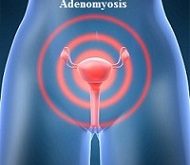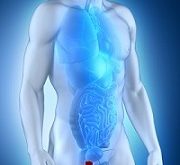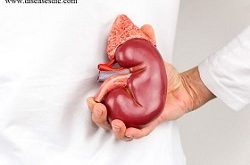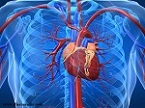Definition Adenomyosis is the condition in which the cells that form lining on the inside of the uterus and also grows in the muscle wall of the uterus. This results in the enlarged uterus and heavy or longer bleeding as well as pain during intercourse or menstrual cycle. This condition …
Read More »Prostate Cancer – Risk factors, Symptoms and Prevention.
Definition – Prostate Cancer Prostate cancer occurs in the prostate gland which is found in males that secretes seminal fluids and transport sperm. The fluid is essential for reproduction. The prostate gland is located in the pelvis below the bladder. Just behind the prostate are glands called seminal vesicles that …
Read More »Amenorrhea – Causes, Treatment and Prevention
Description Amenorrhea is the disappearance of menses in women who are at the reproductive stage. But it is common in prepubertal, postmenopausal, and pregnant woman. It also ceases in the women when they are breastfeeding. Around the age of 50, mensuration stops permanently. However, it is a health problem rather …
Read More »Avascular necrosis or Osteonecrosis- Definition, Causes, and Diagnosis.
Definition Avascular necrosis (AVN) is the localized death of the bone due to injury, trauma, disease or drug side effects. Necrosis generally mean for cell death. Lack of blood flow to the bone cells causes bone necrosis and lead to complete bone damage. This often happens to bone due to …
Read More »Polycystic Kidney Disease (PKD) – Causes, Symptoms, and Treatment.
Definition Polycystic kidney disease is the inherited kidney disease that affects the kidney and other organs. The fluid-filled sacs are developed in the kidney and that disrupts the kidney filtering function and their ability to filter waste products from the blood. The cyst formation causes the kidney to become enlarge …
Read More »Heart valve disease or Valvular heart disease- Symptoms, and Treatment
Definition The heart valve disease is the damage in one of the heart valves such as the mitral valve, aortic, tricuspid and pulmonary. It can disrupt the blood flow to the heart by tissue flopping. The heart valves work by ensuring that blood flows in a forward direction and doesn’t …
Read More »Pelvic inflammatory disease (PID)- Symptoms, Prevention and Treatment
Introduction The pelvic inflammatory disease is the inflammation of female reproductive organs such as the uterus, ovaries, cervix, endometrium, and the fallopian tubes, due to the infection of sexually transmitted bacteria. Sometimes it also caused by the normal bacteria present in the vagina. This bacterium enters via the vagina and …
Read More »Dental Caries or Tooth Decay – Risk Factors, and Prevention.
Description Dental caries can also be termed as tooth decay which is a microbial, progressive, and post-eruptive disease affecting the dental hard tissues resulting in inorganic constituent decalcification and dissolution of organic compounds. It is a dynamic process where both the demineralization and remineralization occurs simultaneously. When the rate of …
Read More » Diseases Treatments Dictionary This is complete solution to read all diseases treatments Which covers Prevention, Causes, Symptoms, Medical Terms, Drugs, Prescription, Natural Remedies with cures and Treatments. Most of the common diseases were listed in names, split with categories.
Diseases Treatments Dictionary This is complete solution to read all diseases treatments Which covers Prevention, Causes, Symptoms, Medical Terms, Drugs, Prescription, Natural Remedies with cures and Treatments. Most of the common diseases were listed in names, split with categories.








